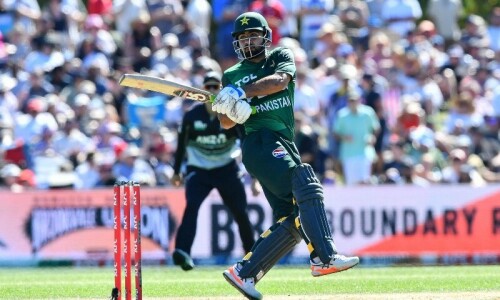A war hysteria has gripped India. It has never happened that those who want peace have been so muted.
The inflammatory commentary by politicians, experts, and journalists is a result of the mushrooming clout of the Hindu right-wing, which is ready and willing to discount peace in the region, at least rhetorically.
What happened in Uri, where 19 Indian soldiers were killed in an alleged militant attack, is condemnable, but the response from the Indian government and especially the media has been highly irresponsible.
Risky posturing has come to define New Delhi’s politics and the national media has played a part in this. Instead of army’s abuses against Kashmiri civilians being the main topic, everyone is busy discussing the pros and cons of war with Pakistan.
Perhaps more than just aimed at Pakistan, the aggressive tone of the Modi government is intended for domestic consumption.
India knows that it cannot entirely isolate Pakistan from global affairs, for Pakistan’s geostrategic location is too important for the country to be left alone by the world.
China and Russia have openly supported Pakistan, while India’s own ally Iran has spoken of its desire to be part of the China-Pakistan Economic Corridor.
The United States’ response to India’s call over sidelining Pakistan has also been cold.
The reason for the brouhaha about isolating Pakistan is because the Modi government came to power on nationalist sentiment.
In the aftermath of attacks such as Uri, it has to assuage its constituency that it will take tougher measures against Pakistan than the previous Congress government, whom it blames for being too soft on Islamabad.
With crucial regional elections also coming up next year, the ruling party cannot to be seen as being unresponsive to the alleged Pakistani interference in Kashmir.
In that sense, Modi has become a prisoner of his own image.
Since geopolitical realities dictate that India cannot get all of the international community to sideline Pakistan, New Delhi is resorting to even stronger rhetoric to make up for the facts and satisfy the more hardcore elements of its constituency.
The promise to review the Indus Water treaty is also a stretch. The truth is that India cannot break a World Bank-negotiated treaty since that would invite the opprobrium of the entire international community, including India’s allies.
India has succeeded in getting its neighbours to boycott the South Asian Association of Regional Conference. However, this should be put into perspective. We should ask how much of the decision was taken by the boycotting countries on their own accord, and how much of it was imposed on them by India.
By focusing the spotlight on Islamabad, New Delhi is trying to divert attention from Kashmir.
But how long can India ignore Kashmir?
Kashmiri discontent against the Indian state cannot be nipped in the bud forever.
Despite Pakistani meddling in Kashmir, India cannot sweep the Kashmir issue under the rug of terrorism.
But the Modi government seems incapable of handling the issue. The situation in Kashmir has worsened ever since the new government came to power. The ruling party views Kashmir through a Hindu nationalist lens, which has not gone down well with the Muslim majority state.
The People’s Democratic Party, which governs Kashmir in alliance with the central government also stands discredited because of this coalition. As neither the local nor the central leadership is trusted by the people of Kashmir, chaos reigns.
Pakistan certainly has to change its ways as well. The people of Pakistan have greatly suffered due to the strategic blunders on the part of its government.
It takes two hands to clap and Pakistan needs to reassure India of its cooperation and seriousness.
But for its part, India needs to carry itself with more maturity than it has until now. It cannot threaten Pakistan with such vitriolic rhetoric.
If the rhetoric translates into action, our fragile region will be on the brink of war.
Sanjay Kumar is a New Delhi based journalist covering South Asia. A keen observer of politics in India and the subcontinent, Kumar in his 15 years of journalistic career has worked with both national and international media. A news reporter, columnist, commentator, producer and blogger, Kumar does not confine himself to one particular genre in journalism.















































